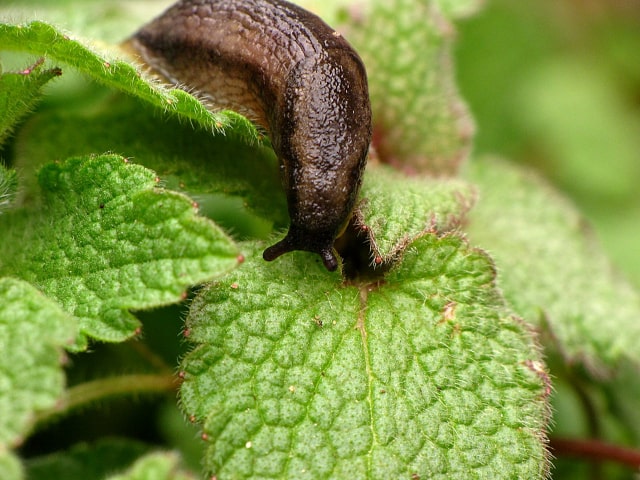
Snails and slugs are common pests in many gardens. They are often very difficult to get rid of, and some means of controls are too invasive. It's almost impossible to find a garden without a slug and snails problem. These pests attack many plants and can ruin your garden pretty quickly.
It's therefore not surprising all gardeners want to know of a good, effective solutions that will prevent snails and slugs from attacking your plants and ruining your garden. The problem is that many commercial products are too harsh and invasive. Chemical solutions are often used but they are never the best way to go. It's always best to use non-toxic and natural solutions for pest control. Chemical products are not eco-friendly and can often bring more harm than good. Many of these products are toxic to birds and other animals and tend to be less effective after the rain, which is when slugs and snails are the most active.
This is why finding effective natural solutions is important. The good news is that many of these solutions exist. You don't have to use pesticides. There are many non-toxic methods of slug control you can use.
Here are some easy, non-invasive and effective ways to control slugs and snails in your garden:
New Watering Schedule
To get rid of slugs, you need to understand when they appear in your garden. They are most active during the night and they prefer damp conditions. To make your garden less welcoming for them, it's important to adjust your watering. Never water your garden during the evening. On the contrary: water in the morning so the soil will dry by the evening. This simple change in your watering schedule can do a lot to reduce slug damage. Certain researches show that this can reduce slug damage for as much as 80 percent. It's a significant percentage and all you need to do is a bit of a change in watering.
Seaweed
This is a good soil amendment so it will help your garden, and it acts as a very effective, natural repellent for slugs. Slugs hate seaweed because it's salty and slugs don't like salt. Make an effort to collect seaweed - it can sure help a lot. You should mulch with seaweed and apply it to the base of the plants and perimeter of bed. Make sure that the pile is at least 3-4 inches thick. You need to do it because once it dries it shrinks a lot and will be about an inch thick. It's important to keep seaweed away from the plant stems so it won't come in direct contact with it. Another good thing about seaweed is that once it dries it becomes very rough, which will further deter slugs.
Lava Rock
Lava rock has an abrasive surface slugs don't like so they will avoid it. You can use lava rock to make a barrier around your plants. It's best to place it above the soil level so dirt and vegetation can't form a bridge on the soil for slugs to cross.
Garlic
Garlic is a very effective slug repellant you can use to control the slug population in your garden. This is a very easy and inexpensive repellant you can use. You can make a garlic spray (garlic mixed with water) to spray your plants or use fresh garlic around your plants. There are also some natural pesticides made of garlic, so you may use one of these commercial products.
Mini Electronic Fence
There is a special mini electronic fence you can install in your garden to deter slugs. This is a safe method to prevent slugs and snails to enter your garden. The Slugs Away fence is about 24 foot long and shaped like a ribbon. It's powered by a 9 volt battery which can work for about 8 months before it has to be replaced. The best thing about this method is that it's harmless to people and pets. When a slug or a snail comes in contact with the fence, it receives a mild static sensation. This sensation can't be detected by humans and pets. It doesn't kill the slug but it makes it to give up on trying to access your garden. It will make it look elsewhere for food so it's an effective way to prevent slugs and snails from entering your garden.
Other Methods
Some other methods of slug control include:
- Copper Obstacles. You can use small strips of copper and place them around raised beds and flower pots. They will serve as obstructions for slugs. Wrap strips of thin copper around the pots or place them on the edges of the soil, making a fence.
- Diatomaceous Earth. It's effective against slugs and it can be sprinkled around garden beds or individual plants. It's less effective when it's wet, so make sure to use it during dry weather. When handling, make sure to wear protective gear because it can irritate the eyes and lungs.
- Traps. There are various traps you can use, but the simplest one to catch slugs alive is to set a wide board or a black plastic sheeting. Place it on the ground in the affected area. Slugs will find it and hide under it during the day. You will be able to simply flip the board or the sheeting during the day to reveal the slugs and remove it from the garden.
- Coffee Grounds. Coffee grounds are effective against the slugs, but it's important to use them in moderation. If you scatter coffee grounds on top of the soil you will deter slugs and discourage them. This is a good way to prevent them from attacking your plants.
Photo credit: Sandy Sarsfield
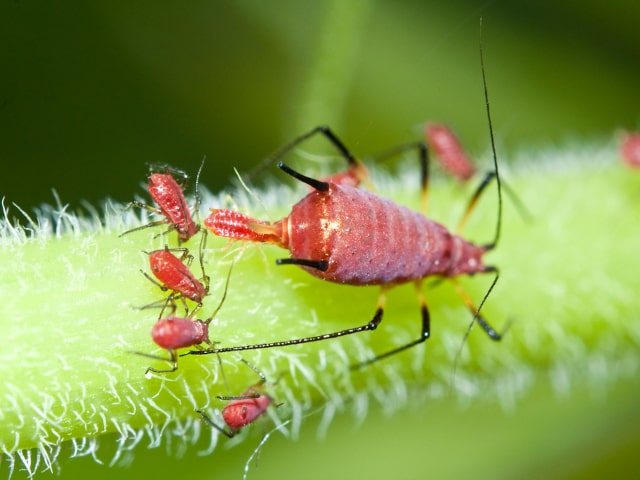
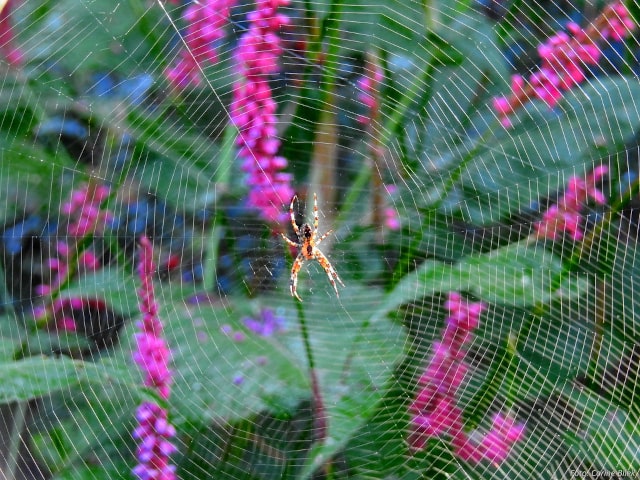
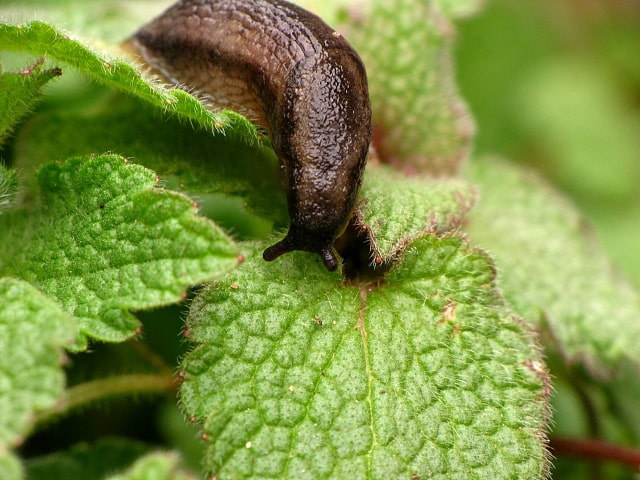
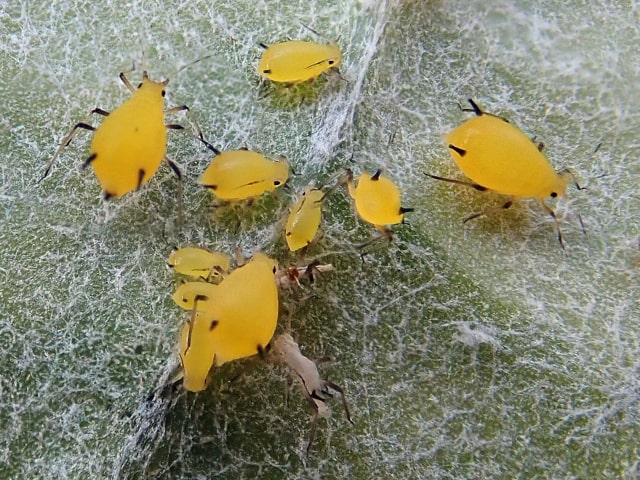
0 Comments